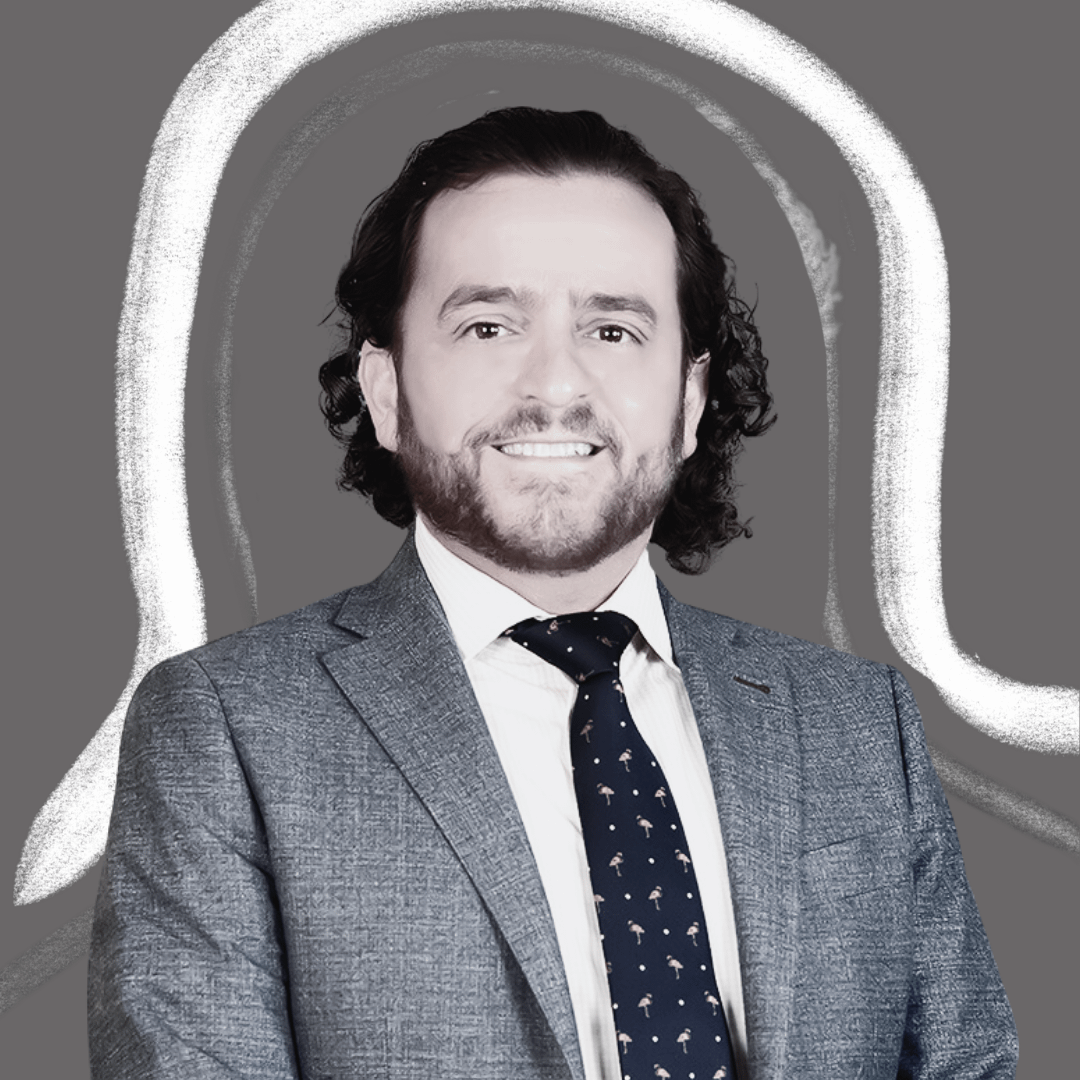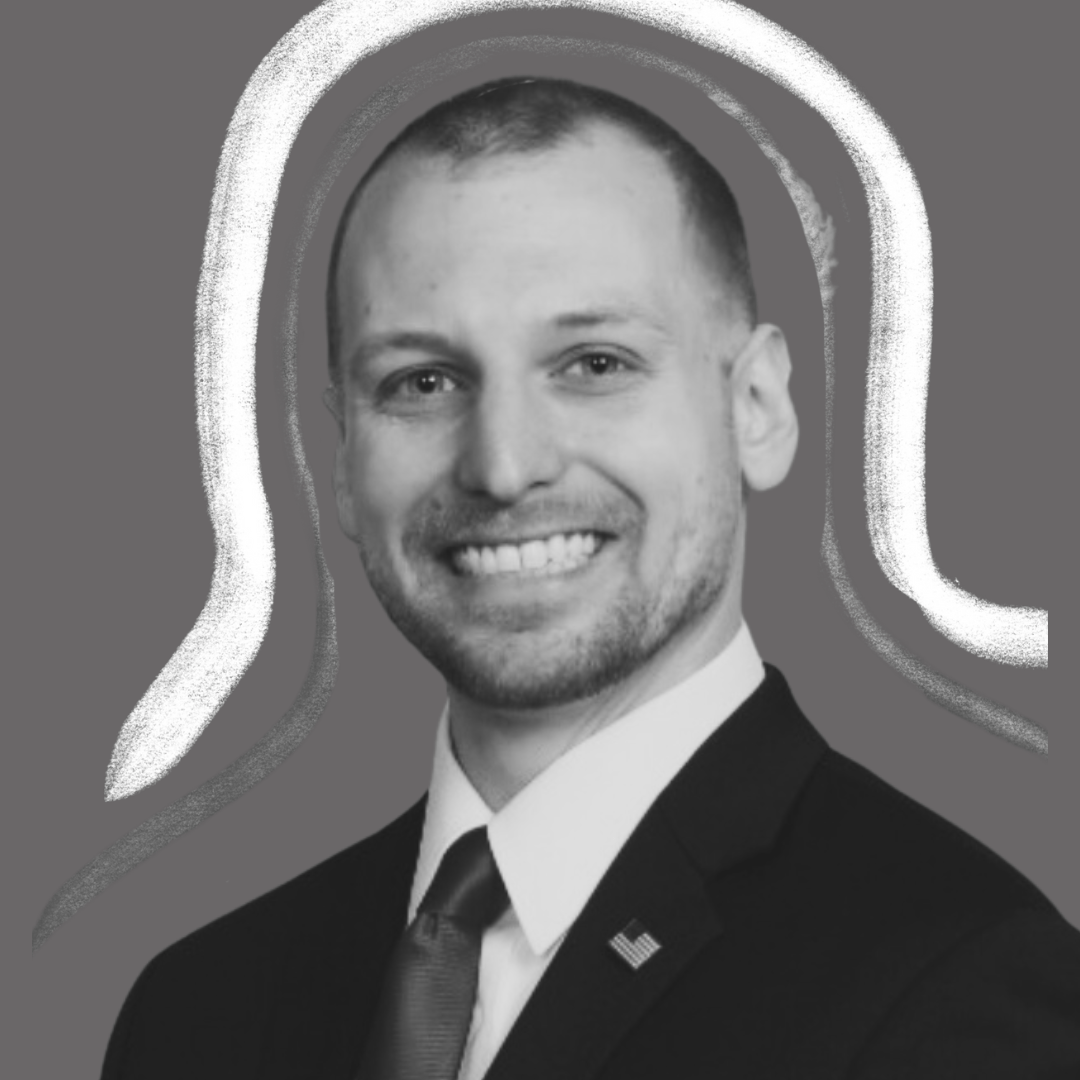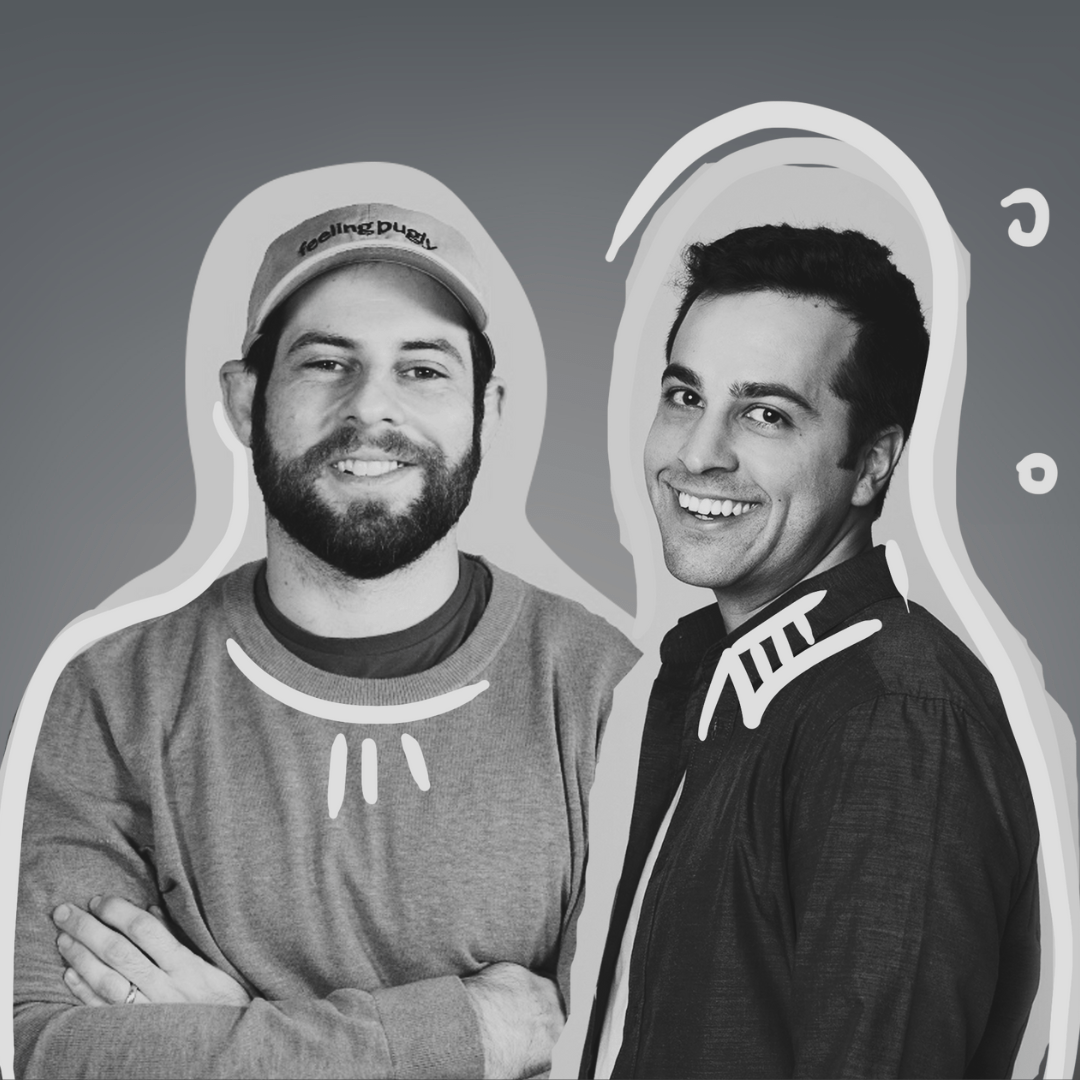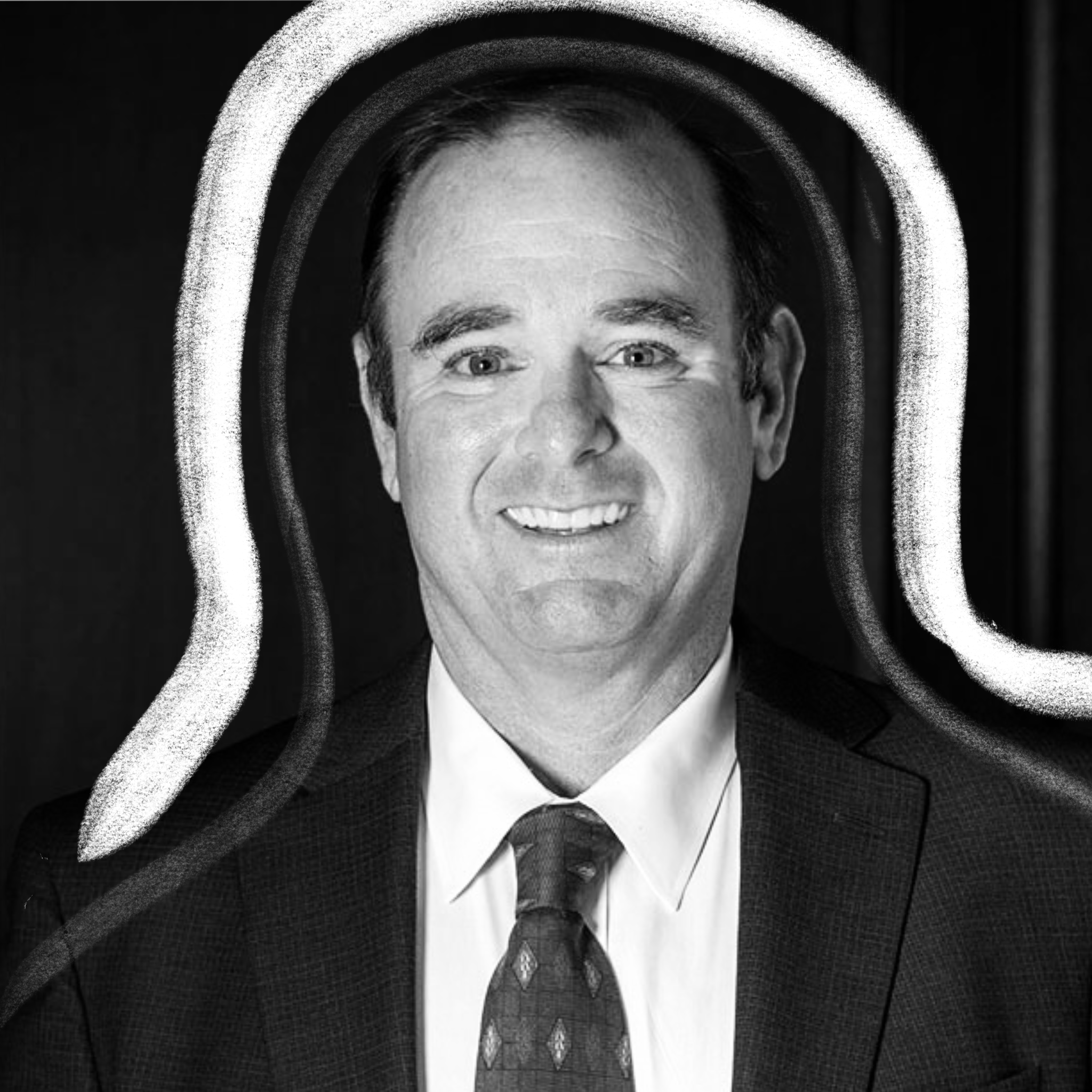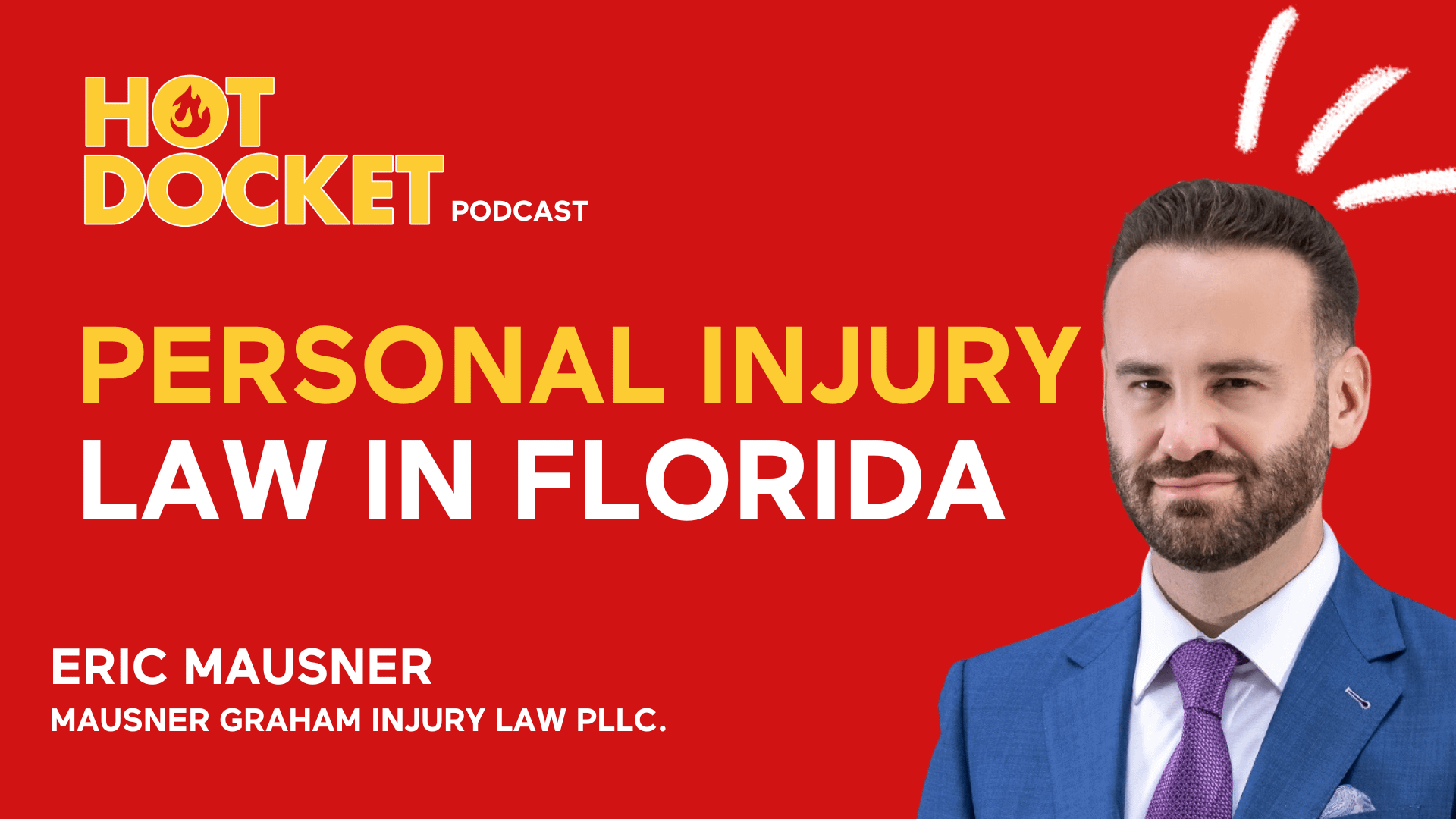
Episode Overview
Personal injury law is a highly saturated market in Florida and with some of the biggest firms in the world headquartered in the sunshine state, you need solid strategies to beat your competition.
Today on Hot Docket, you’ll hear from Eric Mausner, Founding Partner & Personal Injury Lawyer at Mausner Graham Injury Law PLLC.
With offices in Florida and New York, Eric knows firsthand how different the legal process is in Florida compared to other states. It’s faster, weirder, and less friendly to plaintiffs…thus, it requires a different approach to personal injury law.
So, how does Eric’s small personal injury firm find success in a state dominated by megafirms? Tune in now to find out!
Episode Links
Want to hear more from elite lawyers and industry-leading marketers?
Follow us on Social Media for more
Episode Topics
- Eric’s transition from prosecutor to personal injury specialist
- How to succeed as a smaller law firm in a market dominated by large firms
- Strategies for differentiating your law firm from the megafirm competitors
- Technology and automated processes you can integrate into your law firm
- For PI clients: How to select a personal injury firm that will take your claim to trial
- How many cases is too many for a PI attorney?
- Personal Injury in Florida: Are Florida lawyers too risky?
- Is Florida the least plaintiff-friendly state?
- The most challenging thing about Florida’s legal process.
Key Actionable Takeaways for Law Firms:
- Case management software can help you stay organized and connected with your clients so you can be more efficient and better serve your clients.
- An automated case management system will also help with medical management and onboarding more clients/cases.
- Florida is very litigious and cases go to trial fast, especially in personal injury. If you’re bringing a case to Florida from out of state, be ready to litigate!
- The average PI case duration in Florida is 12-18 months compared to 2-3 years in other states.
Episode Transcript
[00:00:00] Eric Mausner:
The personal injury lawyer is taking the time. They’re bringing their experience, their resources, time to prosecute a case, right? It’s a risk. You advance a lot of costs and time and you may not recover. It does happen once in a while, but hopefully you know going into a case what your chances are of recovery and what your client’s going to end up with.
[00:00:21] Bobby Steinbach:
Welcome to Hot Docket, the show where we talk about winning marketing strategies that have built the most successful law
[00:00:26] Andrew Nasrinpay:
firms. Join us every two weeks for the latest trends and tactics to grow your law firm.
[00:00:34] Bobby Steinbach:
Hey everybody and welcome to the Hot Docket podcast. Today, we’re going to be talking about personal injury in Florida.
[00:00:40] Bobby Steinbach:
It’s uh, pretty weird and we’re going to be joined by Eric Mausner, one of the founding attorneys at boutique personal injury law firm, Mausner Graham Injury Law. So that’ll be a good time.
[00:00:50] Andrew Nasrinpay:
Yeah. So personal injury is a, a very congested market in Florida and you’ve got some of the biggest personal injury firms in the world, uh, that either have offices there or their headquarters there.
[00:01:02] Andrew Nasrinpay:
So it’s definitely going to be interesting to hear about from the folks that are kind of in that fight.
[00:01:07] Bobby Steinbach:
Yep. Agreed. Um, with that, let’s say hello to today’s guest, Eric,
[00:01:17] Bobby Steinbach:
Eric, thanks for joining us.
[00:01:19] Eric Mausner:
Thanks for having me.
[00:01:20] Bobby Steinbach:
Of course. Um, so to start out, can you just tell us a little bit about your journey to start Masner Graham and why personal injury?
[00:01:27] Eric Mausner:
Sure. So, um, well I’ve been practicing for 12 years now. I started my career as a prosecutor and I knew instantly when I was leaving government that I wanted to go into personal injury.
[00:01:38] Eric Mausner:
It’s um, you know, transitioning from being a prosecutor into personal injury is a nice thing to do. It’s trial work. It’s litigation. It’s litigation. You get to help people, you get to help victims of, uh, injuries, victims of crime. Um, it’s a nice way to work with clients because you give them access to the civil justice system and they don’t pay you up front.
[00:01:57] Eric Mausner:
You only get paid if you recover. So that’s a really nice way to work with clients. Most clients are like, you know, how much do I owe you? Right. Or I’ll have to hire a lawyer after something goes wrong. But now with personal injury lawyers, we only get paid on contingency. So it’s a very nice way to work with clients as well.
[00:02:11] Bobby Steinbach:
Yep. And like contingency fee, everybody has their own way to tell clients free unless you win. What’s your kind of like messaging?
[00:02:20] Eric Mausner:
Yeah, I mean Look, there’s nothing original. All personal injury lawyers don’t get paid unless you recover, right? No fees unless, no fees or costs unless you recover. So, um, but and we explained to clients Look, the personal injury lawyer is taking the time, they’re bringing their experience, their resources, the time Um, uh, to prosecute a case, right?
[00:02:39] Eric Mausner:
It’s a risk. You advance a lot of costs and time and you may not recover. It does happen once in a while, but hopefully you know, going into a case what your chances are recovery and what your clients going to end up with.
[00:02:51] Andrew Nasrinpay:
With giants in your market like Morgan Morgan, Dan Newland, Rubenstein, all these folks in Florida, how do you succeed as a smaller firm and what are some of the ways you would differentiate yourself from some of the mega firms out there?
[00:03:07] Eric Mausner:
You get that question a lot. Everyone’s always afraid of the big advertisers, but the truth is the population is growing. There’s lots of problems and a lot of people don’t want to go to those firms. Smaller firms like My firm Haner Ram Injury Law. We give our clients a lot of attention. Clients get myself and my law partner.
[00:03:24] Eric Mausner:
Uh, they, we have ac we have a lot of technology, so clients get automation, they get texted. Uh, there’s a lot of ways to reach out to us. We’re very accessible and we, we like to give our clients a lot of, uh, updates, whether we’re doing it manually or we’re the system is sending out automation, emails or texts to clients.
[00:03:41] Eric Mausner:
There’s a lot of things we can do to differentiate, to keep our clients happy. And, you know, I think. When you do go to a smaller firm, you’re going to get better attention. You’re probably going to get better representation as well. And that’s nothing to say anything negative about anyone at those firms.
[00:03:57] Eric Mausner:
I know people at those firms, there’s fine lawyers there, but those are big machines. And, um, clients fall off. Clients complain sometimes. You do hear that.
[00:04:07] Bobby Steinbach:
And on that subject of automation, can you walk us through some of like the most interesting or the most effective flows that you’ve built out?
[00:04:15] Eric Mausner:
Yeah.
[00:04:15] Eric Mausner:
Our case management software actually texts clients. So, um, and not to call it all, not to take away from the gravity of what, of a personal injury case and the seriousness and what somebody is going through. But. We have a system in place that’s kind of like a Domino’s Pizza Tracker. It gives you a text update along the status of your case.
[00:04:36] Eric Mausner:
Clients love it. And the idea is that clients are always connected. They know what’s going on. And I hate, one of the things I hate, one of my pet peeves is the client who says, I don’t hear from my lawyer, I haven’t heard from my law firm, I don’t know what’s going on with my case. I like to avoid that at all costs and technology can help with that.
[00:04:55] Bobby Steinbach:
Yeah. And it makes sense to fight the battles that you can win, right?
[00:04:58] Andrew Nasrinpay:
Has there been any technology you’ve put in place that have helped speed up, um, the timelines for cases?
[00:05:07] Eric Mausner:
I think case management software, um, does do that. So we know the average length of a case in presue. We can start to set client expectations.
[00:05:17] Eric Mausner:
This case might take six to nine months, might take longer litigation, might take one to two years. So the system actually helps us with reminders. and the automated updates and helps us move along cases. And then it also does help us with medical management. We want clients to get healthy. Of course, that’s the, that’s the primary purpose of a personal injury case.
[00:05:36] Eric Mausner:
The second purpose of course is to get paid, but you want your clients to get healthy and the system will help with the medical management as well.
[00:05:44] Bobby Steinbach:
Yeah. I was talking to one of, um, the folks I stay in contact with at one of the big firms and, um, they were saying like that is the number one problem that they are trying to solve.
[00:05:53] Bobby Steinbach:
With automation and back end processes is how to make sure people go to their appointments, how to make sure that they’re getting the treatment they need. And it’s not like a trivial problem. It’s a, it’s hard, it’s hard to solve.
[00:06:04] Eric Mausner:
It’s a hard part of the business. And the only way to solve it is technology and staff.
[00:06:10] Eric Mausner:
It has to be someone’s job calling clients. It has to be technology sending them updates and it alleviates the lawyers. It alleviates the staff. It sets expectations. from the beginning of cases all the way into into settlement, whether that’s at trial or mediation or at any point in time. Um, you want to keep the client informed.
[00:06:31] Eric Mausner:
You want to keep expectations realistic to
[00:06:35] Bobby Steinbach:
Yep. Makes sense. And, and, you know, on this subject of talking about what the experience is like for clients, uh, I think it’s a good segue into talking about Florida as a whole. It, it’s not exactly known as a plaintiff friendly state. Um, tort reform seemingly has killed first party insurance dispute as a case type, at least according to like a lot of the folks we’ve talked to.
[00:06:55] Bobby Steinbach:
I’d love to just hear from you. How has this bias manifested in the PI world? Are you often facing an uphill battle?
[00:07:03] Eric Mausner:
Well, yeah, it’s always an uphill battle. Every cases can be a battle against an insurance company who wants to pay you pennies, right? Um, but total reform. Yeah, what it did was will change the statute limitations from 42 years, right?
[00:07:18] Eric Mausner:
It changed negligent security law. It changed certain things that you can do on how you board your meds and work on, uh, letters of protection. Um, It changed bad faith laws. So now the insurance companies may not, uh, don’t seem to care about paying on time, right? There’s no, there’s no, what’s the penalty if they don’t pay your client?
[00:07:39] Eric Mausner:
Um, on time, right? There’s a 90. They’ve changed the laws. I won’t go into all the details, uh, you know, in this podcast, but, um, and obviously the big one, which I could have said first is they’ve now comparative negligence is 51 percent in the state. So if the plaintiff is more than 51 percent negligent, Plaintiff gets, and is found liable at trial, you get zero, 51 percent more on your, on the, on the plaintiff at trial, you’re getting zero.
[00:08:07] Eric Mausner:
So that’s a big change in Florida. In the past, it was called pure comparative negligence, where if your client was 25 percent at fault or 30 percent at fault, you could still recover. Your reward just would get reduced by that 75 or 70%, right?
[00:08:23] Bobby Steinbach:
Yeah, we’ve heard a lot of
[00:08:24] Eric Mausner:
it. Yeah, now you get zero. So the insurance companies are going to start to test that.
[00:08:29] Eric Mausner:
They may not pay out on t cases. They may not want crashes where multiple pa We’re gonna find out we’r trial and all we can do i of states have 51 percent Pennsy There’s a lot of other st to have my comparative, uh, fault at 51 percent and they survived. So we’ll, we’ll keep the push going.
[00:08:55] Bobby Steinbach:
I think it was, uh, North Carolina was a firm that we’re working with that has that, that in place.
[00:09:00] Bobby Steinbach:
I don’t know if it’s 51 percent or, or
[00:09:03] Eric Mausner:
it’s there’s four States in the four jurisdictions in the country that have what’s called contributory negligence. The plaintiff is 1 percent negligent. He’s barred from recovery. He or she that’s North Carolina, Washington, DC. Virginia and Maryland.
[00:09:17] Bobby Steinbach:
Yeah. I, I knew they had a, like a particularly difficult time and it becomes like the focal point in a lot of their cases is that negligence.
[00:09:26] Eric Mausner:
Look what, what this is going to do to most plaintiff lawyers in Florida is going to make you a little more selective case, a prime, a top premises case, like a top for slip and fall that you might’ve taken under the old law. It’s maybe something you pass on now. because of that.
[00:09:40] Andrew Nasrinpay:
So Florida man is a trope for a reason.
[00:09:42] Andrew Nasrinpay:
Do you think the injuries and cases in Florida are especially out there? What’s the craziest one that you’ve personally seen?
[00:09:50] Eric Mausner:
Um, there’s probably a long list. Um, you know, some of this, this can be confidential. You don’t want to, um, speak without client permission, but I, I, I had it. I remember I had a case where I had a client running from the cops, tried to, he tried to climb down.
[00:10:07] Eric Mausner:
He was in the building, running around from cops, hiding from the cops for an hour. Okay. And he’s climbing up and down balconies. He’s in stairwells, and he ultimately breaks into an apartment, running from the cops, tries to climb down a balcony on the 24th floor, falls and dies. But we were able to recover money after that.
[00:10:27] Eric Mausner:
And, you know, even despite his criminal conduct, despite his criminal record, we were able to argue negligent security and recover. So that was one of, you know, just an example of a crazy case that’s awful and sad, but we’re able to recover money for the survivors.
[00:10:42] Bobby Steinbach:
It also sounds like an instance where, you know, people always ask this question, why do I need an attorney?
[00:10:46] Bobby Steinbach:
Why can’t I just do this? I think fighting like a police department or a city is a good example of why you probably do need a lawyer working on your behalf.
[00:10:56] Eric Mausner:
Yeah. Or if he gets really sick, do I need a doctor to help me? It’s like a similar, like, why wouldn’t you go to a professional who has experience, who’s trained in law, who knows your rights, who can file a lawsuit on your behalf?
[00:11:08] Eric Mausner:
Insurance companies know this. They know this, they’re going to take advantage of the public. They make money by not paying out money. It’s a simple formula, right? Pay your premium. And when it comes time to put in a claim, you’re going to get ripped off. If you don’t go to counsel who can help you build damages, the average person doesn’t know what economic and non economic damages are in a personal injury case, right?
[00:11:31] Eric Mausner:
Do you know the value of pain and suffering, mental anguish, inconvenience, disability, disfigurement, right? Do you know how to present those to an insurance company? Do you know how to present those in court? The average person doesn’t know how to do that. So, um, you know, the person who says I can do this myself, usually it’s a bad idea, but I can, I’ll give you the law school answer.
[00:11:50] Eric Mausner:
Yeah, maybe it depends.
[00:11:52] Andrew Nasrinpay:
Yeah, I think the number, the number we’ve seen thrown around is typically attorneys will get something like three times the amount than if a client tries to do it themselves and negotiate with the insurance company.
[00:12:05] Eric Mausner:
Yeah, I don’t know the statistic, but that I would, I would imagine it’s at least three times.
[00:12:09] Eric Mausner:
And if you go, if you’re filing lawsuits, it’s going to be much more, much more. You have to put a lot of these cases into litigation to maximize the value. Even if they end up settling right away or getting to mediation, you have to file and you want to be with a law firm that files lawsuits and litigates.
[00:12:27] Eric Mausner:
You don’t want to be with an injury lawyer or a non injury lawyer out there working your claim and you don’t want to go to a law firm out of state, right? I just. I just got a case from a florida, a new york lawyer who was working on a florida case and the case got screwed up. New York lawyer didn’t, the firm didn’t put the attention into it.
[00:12:49] Eric Mausner:
They didn’t set the medical treatment up properly. The client wasn’t referred to the right doctors. The case was kind of new. It wasn’t worked up from the get go by this New York lawyer, and when they sent the demand, State Farm offered him 300. Prime example of why you want to hire a lawyer in the jurisdiction where the accident occurred immediately after it happened.
[00:13:13] Bobby Steinbach:
Reminds me of the hometown lawyer. We had a conversation, like, recently with another firm, and they specialize in small towns, and why it’s so much better, you know, working with an attorney that lives in the community, is in the community, and kind of speaks to exactly what you’re saying.
[00:13:29] Andrew Nasrinpay:
Yep. So you brought up an interesting point where you want to go.
[00:13:33] Andrew Nasrinpay:
If you are a client searching for a firm, you want to pick a firm. That is going to be able to give you attention and that they’re actually filing the claims and they’re going to trial How if you were a client would you select a firm? Um based on that criteria, like how are you going to know that they’re actually taking claims, uh to trial?
[00:13:53] Eric Mausner:
Those are questions that you should be asking the lawyer the law firm up front. Do you file lawsuits? Do you litigate do you go to trial? Do you have enough cases you have time for my case, right? You can ask some of those questions up front to feel out the law firm, you know You Who’s gonna be working on my case?
[00:14:09] Eric Mausner:
Is it you? Is it your associate? Is it paralegal? Um, if you really want to take it a step further, you can always look up lawsuits as well. You know, I would, I would, uh, ask some of those questions up front. If I were to hire a lawyer, let’s say for a non personal injury matter, I would ask those questions as well.
[00:14:29] Eric Mausner:
A corporate transactional lawyer. You know, I would ask about their background. How many cases are they handling? You know, what are the expectations? When’s this gonna be finished? Things like that. So I’d ask questions. Same thing. Same way you would ask a surgeon who’s about to perform surgery on you, right?
[00:14:44] Eric Mausner:
How many times have you done the surgery? How long you’ve been practicing, right? What are the risks, etcetera.
[00:14:50] Andrew Nasrinpay:
So if you were doing that, how many cases on on an attorney’s docket is too many where if you see that they have X amount of cases. Where would the line in the sand be for you? Like real cases that are going to go to trial, not prelate cases.
[00:15:07] Eric Mausner:
We were having this conversation. Um, it’s having this conversation a couple weeks ago. Um, this is going to vary from attorney to attorney, and it’s going to vary depending on the kind of case. There’s lawyers that can handle a ton of small volume cases, right? And then there’s the lawyers who want to hire handle 10 to 20 mega catastrophic cases, right?
[00:15:26] Eric Mausner:
Um, For an average litigator, 40 to 50 cases in litigation is a lot. Some people say you can’t handle more than 40, some say it’s 60. Some of these big firms, Morgan Morgan, Rubenstein, those litigators might have 60 to 75 queued up. Pre suit’s another animal. So, you know, there’s lawyers that are handling hundreds of cases pre suit, which is monitoring clients treatment and sending demands, right?
[00:15:56] Eric Mausner:
Yeah. Have
[00:15:58] Andrew Nasrinpay:
you noticed that when you onboarded software, you were able to bump those numbers like from a firm that had nothing to bring on some level of automation. If you had to put rough figures to it, what would you guess?
[00:16:11] Eric Mausner:
It’s night and day actually having software that does allow you to manage much more.
[00:16:15] Eric Mausner:
It really does. Um, I meet tons of lawyers out there, the old school kinds, young and old. Um, they’re missing out the refuse, you know, refusing to change and adapt and evolve with what’s going on with the tech. You can definitely handle more files, um, using technology. That’s for sure.
[00:16:36] Bobby Steinbach:
Cool. And
[00:16:37] Eric Mausner:
I, and I haven’t even implemented AI to do any of this.
[00:16:40] Eric Mausner:
But there’s a lot of lawyers using AI now, right? To, to read depots, to write demands, to write documents. AI is actually helping a lot now too.
[00:16:49] Bobby Steinbach:
That one guy got called out, right? And kind of recently for using AI. I don’t, I don’t remember the case type, but it was pretty famously, uh, called out.
[00:16:59] Eric Mausner:
I think there was an injury lawyer in New York.
[00:17:01] Eric Mausner:
Or there was a litigator in New York who used AI to write a motion and didn’t check the case law and the judge slammed him. That’s in the, that was in the news.
[00:17:15] Bobby Steinbach:
Ouch. Um, so I want to circle back to going to litigation and, and just talk about Florida as a whole. So we talked about Florida man as a stereotype.
[00:17:25] Bobby Steinbach:
And I think what that really means is a lot like New Or how people perceive that at least is people in Florida tend to take risks. That’s just like the stereotype and can be a little out there. Can you talk about whether or not that stereotype works against them in the court system when it goes to litigation?
[00:17:44] Eric Mausner:
Trying to understand your question. Um, look, Florida is a crazy state. There’s 20 million plus people here. There’s tons of problems. Uh, there’s problems here that you, you and I couldn’t even think of, right, until it pops up on your Florida man on Instagram and you’re like, holy shit, did that happen? Um, every look, every case is different if you’re going to create evidence and commit a crime or, or, or injure somebody and it’s captured, it’s going to be used against you.
[00:18:10] Eric Mausner:
Right? So I think. Is that where you’re going with this?
[00:18:13] Bobby Steinbach:
I think it’s more like our insurance companies actively in the court system trying to argue more negligence type of, um, grounds because they’re just saying as a whole, this person is crazy or this person is like reckless. And does that just happen more?
[00:18:33] Eric Mausner:
Well, let’s put it this way. If, if you’re putting information and putting things onto onto social media, the insurance company is going to get it and use it against you. So, yes. If you’re doing stupid shit on your tiktok or your instagram, like that’s discoverable. And what they, what these insurance companies actually do is the second the claim is opened, they’ll reach out to the insured and, and they themselves will start looking at your social media if it’s open and they’ll start capturing, they’ll start capturing videos and photos and those, those will be used against you in deposition.
[00:19:10] Eric Mausner:
And in court, that’s for sure. All
[00:19:12] Andrew Nasrinpay:
right. So for lawyers listening that don’t work in Florida, what would be the single hardest thing to acclimate to? What is the most challenging, challenging or unique thing in the Florida legal process?
[00:19:27] Eric Mausner:
Um,
[00:19:29] Andrew Nasrinpay:
like the, the example you gave with a New York firm that took on a Florida client and probably plan to refer it out later.
[00:19:37] Andrew Nasrinpay:
What would you like tell folks ahead of time who would be referring cases to Florida firms if they can’t even because I think they have to be uh, barred in Florida even do that, right?
[00:19:49] Eric Mausner:
Yeah, you do. Um, and you have to get prohoc vich, you have to get permission. So look, I usually tell out of state lawyers that Florida is very litigious.
[00:19:58] Eric Mausner:
Everyone, everyone knows that and that’s probably why there’s, There was tort reform and why there was, you know, ri rising premiums. Maybe there was probably a small component of it though. Um, there’s a number of other reasons why insurance goes up. Uh, I wouldn’t blame it on litigation. In fact, I pretty sure the plaintiff’s bar, uh, says litigation’s not the cause for, um, increased premiums.
[00:20:21] Eric Mausner:
But I tell out state lawyers that this, it’s a litigious state and that cases go to trial fast here, especially on the criminal side. Cases go in front of a jury at least, at least pre pandemic. The system’s pretty clogged up. Now. There’s lots of cases filed. Morgan, Morgan, I think, filed 25,000 tort reform.
[00:20:40] Eric Mausner:
You know, we’ve, we filed a lot, everybody filed cases right before tort reform, but I tell outta state lawyers that things go to trial here and that you have to be ready to litigate, unlike other jurisdictions. and what I’ve noticed too if you compare it to new it moves much faster down because you get, you get your client client gets j I’ve noticed, but you kno I’m barred in New Jersey I just know that the system moves way slower up there.
[00:21:13] Andrew Nasrinpay:
So if you had to compare those timelines, what, what would you say the average case duration is in Florida versus New York?
[00:21:21] Eric Mausner:
From what I’ve seen just recently, if I can get a case done in 12 to 18 months in Florida, that might take two or three years up there.
[00:21:29] Andrew Nasrinpay:
That’s, that is kind of nuts.
[00:21:33] Eric Mausner:
And when I moved here to be a prosecutor, I tried as a prosecutor, probably at least 25 cases in three years.
[00:21:40] Eric Mausner:
That was substantially more than the lawyers in New York. The system moves quicker down here, even on the criminal side. So I’ve just noticed that myself over time.
[00:21:52] Bobby Steinbach:
Awesome. Well, Eric, I think we learned a lot in this conversation and Florida is indeed weird, um, especially in personal injury side. So. Uh, confirmed on that front.
[00:22:06] Bobby Steinbach:
Thanks again for joining us. And, um, yeah, for folks to get in touch. If you want to just shout out, you know, easiest way to get ahold of you, that’d be, that’d be awesome.
[00:22:16] Eric Mausner:
Yeah. I’m very accessible on all mediums, but, uh, you know, 305 344 HURT is our main line 305 344 4878. And of course we’re on social media, MG injury firm and the websites mginjuryfirm.
[00:22:32] Eric Mausner:
com.
[00:22:33] Bobby Steinbach:
Thanks Eric.
[00:22:34] Eric Mausner:
Thanks for having me
[00:22:42] Bobby Steinbach:
another good episode another pug groaning. I don’t know what this is. That’s becoming a theme
[00:22:48] Andrew Nasrinpay:
Yeah, I feel like halfway through she always jumps up goes right up to the microphone and just grunts or sighs
[00:22:54] Bobby Steinbach:
Yeah, it’s uh, maybe a problem. I guess we’ll find out But yeah now as Unsurprised, I guess, uh, this is what we kind of expected going in that, you know, we were going to learn some things about why personal injury is weird in Florida and we did.
[00:23:13] Bobby Steinbach:
Um, so that, that’s been super eyeopening for me. And I think as we go forward, you know, helping our clients grow and do the things we need to, it’s also really helpful for us.
[00:23:24] Andrew Nasrinpay:
I think part of the reason, uh, personal injury is the way it is in Florida. Is the demographics where you’ve got a lot of older folks and a lot of younger folks and everyone’s going up and down 95 so you’ve got high speeds with old and young drivers, it’s bound to have a lot of injury
[00:23:42] Bobby Steinbach:
95 is crazy.
[00:23:43] Bobby Steinbach:
I’ll tell I’ll tell a quick story before we hop off. I used to live. I was in Florida for two and a half years during the pandemic. I was at, um. What do you call it? I was in Fort Lauderdale, Miami, then Fort Lauderdale. And uh, I was driving, you know, 95 is 95. You see crazy shit all the time. But like I was driving up from, I think I was actually driving home.
[00:24:02] Bobby Steinbach:
We would do that drive once, once a year, go from Florida back up to New York. We were driving back and it was crazy traffic jam. And, um, we’re going very, very slowly, very slowly. Finally, we’re creeping along the left lane and there’s just like an active police shootout in the middle of the highway. And it’s like, okay, I’m in Florida.
[00:24:19] Bobby Steinbach:
This is happening. Um, anyways, thanks again to Eric for joining us. This was a great episode of Hot Docket Podcast. Join us on the next one. We hope you’ve enjoyed this episode of hot dog. We’re your hosts, Bobby and Andrew, founders of the marketing agency for ambitious law firms.
[00:24:35] Andrew Nasrinpay:
Have questions about marketing or anything we covered today?
[00:24:38] Andrew Nasrinpay:
Email us at bark at mean pug.com.




